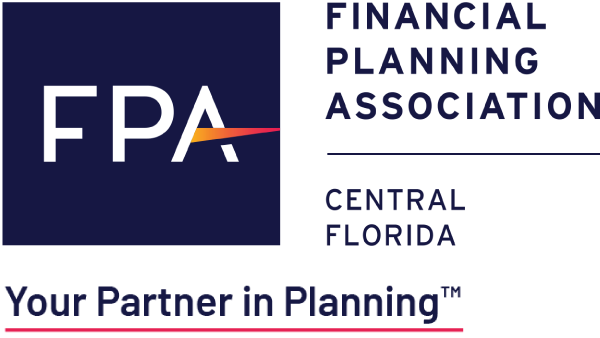
Best Financial Advice for 2017: Experts’ Top 15 Money Tips for the New Year
If you follo w the Chinese zodiac, 2017 is the Year of the Rooster. But it might as well be the Year of the Question Mark for all the uncertainty surrounding financial markets, government policy and the global geopolitical landscape.
w the Chinese zodiac, 2017 is the Year of the Rooster. But it might as well be the Year of the Question Mark for all the uncertainty surrounding financial markets, government policy and the global geopolitical landscape.
What does all the uncertainty mean for your money? What steps should you consider taking in the year ahead to provide yourself with a measure of much-needed financial clarity in the face of such a cloudy future? Read on as some of the country’s leading personal finance experts offer their suggestions for handling your money in 2017.
- Stick with a long-term financial plan and investment strategy. “Don’t let emotional reactions to short-term events, market volatility or the incoming Trump administration’s policies influence your decisions,” advises Dr. Robert Tucker, MD, MBA, AIF, vice president at Plancorp, LLC, in St. Louis, MO. “Stay with the basics of regular savings, diversification, periodic rebalancing and tax-loss harvesting if the opportunity presents.”
- Focus on things you can control in your financial life by paying attention to such things as mutual fund expense ratios (generally speaking, the lower the better), asset allocation strategy (diversification appropriate to age and other factors) and personal savings, suggests Certified Financial Planner™ Maureen M. Demers of Demers Financial, North Andover, MA. “Don't make investment decisions [based] on the things which you have no control over,” such as the latest political controversy playing out on social media.
“Every couple days another industry or company is being mentioned by the new [Trump] administration as a potential target of inquiry,” echoes Ian M. Weinberg, a Certified Financial Planner™ who heads Family Wealth & Pension Management in Woodbury, NY. “Don’t let that noise shake your planning and your portfolio decisions.”
- Fund an individual retirement account (IRA) and/or a 401(k) type retirement plan — preferably to the maximum amount allowed by tax law. “If the option to fund an IRA or similar plan for 2016 exists, be sure to do so before the April 15 tax filing deadline,” Tucker recommends. “Don’t forget about funding an IRA or Roth IRA for children who had earned income in 2016. And make your 2017 IRA contributions early in the year to take advantage of tax-deferred growth.” Also keep an eye out, as retirement plan contribution limits may increase for 2017, according to Weinberg.
- Consider converting a traditional IRA to a Roth IRA. Personal federal income tax rates likely will drop in 2017, posits Weinberg, and that generally makes converting to a Roth IRA more attractive, he explains, because taxes associated with the conversion will tend to be lower. Roth IRA assets are good to include in a portfolio because they are not taxed when withdrawn (distributed), unlike distributions from a traditional IRA, which are taxed as ordinary income.
- “Make it automatic!” recommends Certified Financial Planner™ Christine Haviaris of TTR Wealth Partners in Pearl River, NY. That is, automate contributions to retirement accounts, savings accounts, college savings accounts and the like, and do the same with bill payments, to remove the guesswork and the temptation to forego a contribution or skip a payment.
- Calculate and track your net worth. “This is a great way to keep score and lets you know if you are winning or losing,” says Todd W. Minear, a Certified Financial Planner™ with Open Road Wealth Management in Kansas City, MO
- Treat your household finances like a business. Practice fiscal responsibility like a well-run business would, suggests Certified Financial Planner™ Kris Garlewicz, who heads Prosperifi in Rosemont, IL. Create financial statements for yourself and allocate capital accordingly, making purchases only when they align with your overall objectives. “Be deliberate and thoughtful to everything you do, and take good care of those around you.”
- Consider becoming your own boss or launching a small business in 2017. Corporate income tax rates are likely to decrease this year, perhaps to as low as 15%, significantly less than the 25-35% ordinary income tax rates many employees currently pay. “That 20-point [tax rate] spread is reason to consider becoming an independent contractor or going into business for yourself,” says Weinberg.
- If you have an adjustable-rate mortgage (ARM), consider refinancing it, Weinberg suggests. Current trends indicate interest rates will continue to creep up in 2017, so now may be a good time to refinance from an ARM to a fixed-rate mortgage.
- Review your overall financial plan. “The new year is a great time to refine your goals, review last year’s spending, refine insurance coverage and be sure estate documents are in order, including health care directives and powers of attorney,” observes Tucker.
- Get a second opinion on your financial standing and your financial plan, if you have one. “Often, two sets of eyes are better than one,” Minear explains. “Do you really need the high premiums of that whole life policy? What about that annuity? Does it still make sense? You may own some financial products that were purchased years prior. As we all know, things change, so if your situation has changed, it may make sense to change the tools used to implement your plan.”
- Give back. “Whether you donate money or time, the act of giving can have a profound impact on your life as well as the lives of others,” says Minear.
- Hit the pause button with regard to major changes in your estate plan. “Speculation abounds with regard to potential changes in the tax code and wealth transfer regulations,” notes Tucker. “It may be best to defer any major rewrites until the picture becomes clearer.”
- Share your knowledge and wisdom with others. “Most children need financial education. Figure out a way to deliver this,” recommends Minear. Talk informally with kids and grandkids about a financial mistake you’ve made and what you learned from it, for example. Show them bank statements and other financial statements and explain what they mean. Give them a glimpse of an investment statement to provide a context for a discussion about the time-value of money and the merits of a long-term investment strategy.
- Pick up a book about behavioral finance, Minear suggests. “Knowing why and how you make financial decisions will help you in the future.” Two of his recommended reads: Thinking, Fast and Slow by Daniel Kahneman and The Little Book of Behavioral Investing: How Not to be Your Own Worst Enemy by James Montier.

